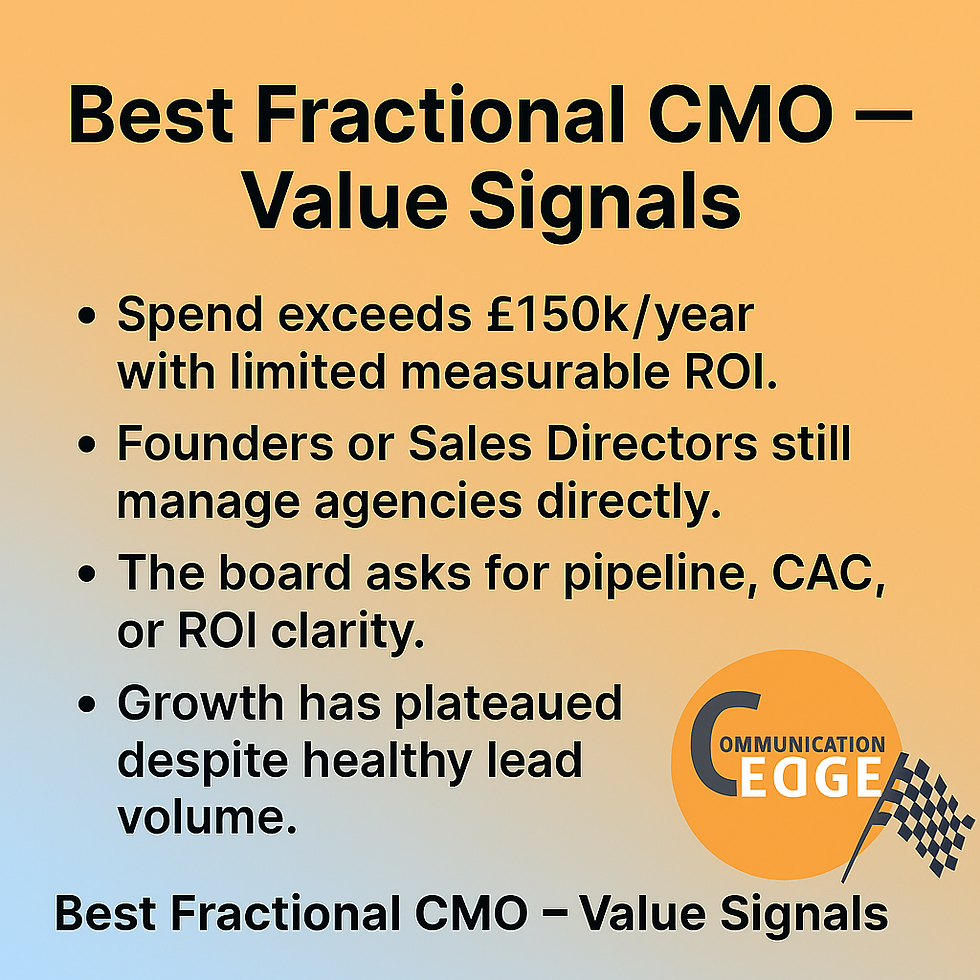Expert Digital Marketing Analytics Services to Unlock Actionable Data
- Simon Hunt
- Jul 22, 2025
- 6 min read
Updated: Oct 24, 2025
In today's digital world, data is everywhere.
We hope to show you in these blogs how you avoid basic errors that 99.9% of businesses and most agencies make.
The good news is you can become the 0.1% with ONLY doing basics well, understanding your competitors and simply using mostly free tools well.
The bad news is , fail to learn, try to muddle through without doing the basics right and failure is guarranteed.
Businesses generate vast amounts of information every day. However, simply having data is not enough.
The real challenge lies in transforming that data into actionable insights.
This is where expert digital marketing analytics services come into play.
They help businesses understand their data, make informed decisions, and ultimately drive growth.
In this blog post, we will explore the importance of digital marketing analytics, the services available, and how they can unlock valuable insights for your business.
The Importance of Digital Marketing Analytics
Digital marketing analytics is the process of collecting, measuring, and analyzing data from various digital marketing channels. This includes social media, email marketing, website traffic, and more.
Understanding this data is crucial for several reasons:
Informed Decision-Making: Analytics provide insights that help businesses make better decisions. Instead of guessing what works, you can rely on data to guide your strategies.
Improved ROI: By analyzing data, businesses can identify which marketing efforts yield the best return on investment. This allows for more effective allocation of resources.
Customer Insights: Analytics help businesses understand their customers better. You can learn about their preferences, behaviors, and needs, which can inform product development and marketing strategies.
Competitive Advantage: Companies that leverage data effectively can gain a competitive edge. They can respond to market changes quickly and adapt their strategies accordingly.
Key Services in Digital Marketing Analytics
There are several key services offered in the realm of digital marketing analytics. Each service plays a vital role in helping businesses unlock insights from their data.
1. Data Collection and Integration
The first step in any analytics process is data collection. This involves gathering data from various sources, such as:
Website analytics tools (e.g., Google Analytics)
Social media platforms (e.g., Facebook, Twitter)
Email marketing software (e.g., Mailchimp)
Customer relationship management (CRM) systems
Integrating this data into a single platform allows for a comprehensive view of your marketing efforts.
2. Data Analysis and Reporting
Once data is collected, the next step is analysis. This involves examining the data to identify trends, patterns, and insights.
Analysts use various techniques, such as:
Descriptive analytics: Summarizing historical data to understand what happened.
Predictive analytics: Using historical data to forecast future trends.
Prescriptive analytics: Recommending actions based on data analysis.
Reports are then generated to present these findings in a clear and understandable format.
3. Performance Tracking
Tracking the performance of marketing campaigns is essential. This service involves monitoring key performance indicators (KPIs) to assess the effectiveness of your marketing efforts.
Common KPIs include:
Website traffic
Conversion rates
Customer acquisition cost
Return on ad spend
Regular performance tracking allows businesses to make timely adjustments to their strategies.
4. A/B Testing
A/B testing is a powerful method for optimizing marketing campaigns. This involves comparing two versions of a marketing asset (e.g., an email, landing page, or ad) to see which performs better.
By analyzing the results, businesses can make data-driven decisions about which version to use. This can lead to improved engagement and conversion rates.
5. Customer Segmentation
Understanding your audience is key to effective marketing. Customer segmentation involves dividing your audience into distinct groups based on shared characteristics.
This can include:
Demographics (age, gender, location)
Behavior (purchase history, website interactions)
Preferences (interests, needs)
By segmenting your audience, you can tailor your marketing messages to resonate with each group.
Real-World Examples of Data Insights
To illustrate the power of digital marketing analytics, let's look at a few real-world examples.
Example 1: E-commerce Store
An e-commerce store used analytics to track customer behavior on their website. They discovered that a significant number of visitors abandoned their shopping carts.
By analyzing the data, they found that many customers were deterred by high shipping costs. In response, the store implemented free shipping for orders over a certain amount. As a result, they saw a 20% increase in completed purchases.
Example 2: Social Media Campaign
A company launched a social media campaign to promote a new product. Initially, they used a broad targeting strategy. However, after analyzing engagement data, they realized that a specific demographic was responding better to their ads.
They adjusted their targeting to focus on this group, leading to a 30% increase in engagement and a significant boost in sales.
Example 3: Email Marketing
A business ran an email marketing campaign to promote a seasonal sale. By conducting A/B testing on subject lines, they found that a more personalized approach led to higher open rates.
They used this insight to personalize future emails, resulting in a 25% increase in click-through rates.
Choosing the Right Analytics Service Provider
When selecting a digital marketing analytics service provider, consider the following factors:
Experience: Look for a provider with a proven track record in digital marketing analytics.
Tools and Technology: Ensure they use the latest tools and technologies for data collection and analysis.
Customization: Choose a provider that offers tailored solutions to meet your specific business needs.
Support and Training: A good provider should offer ongoing support and training to help you understand and utilize the insights gained from analytics.
The Future of Digital Marketing Analytics
As technology continues to evolve, so does the field of digital marketing analytics. Here are a few trends to watch for in the coming years:
Artificial Intelligence: AI is becoming increasingly important in data analysis. It can help identify patterns and trends that may not be immediately apparent to human analysts.
Real-Time Analytics: Businesses are moving towards real-time data analysis. This allows for quicker decision-making and more agile marketing strategies.
Data Privacy: With growing concerns about data privacy, businesses must navigate regulations while still leveraging data for insights.
Unlocking Your Business Potential
In conclusion, digital marketing analytics services are essential for businesses looking to unlock valuable insights from their data. By understanding and leveraging this data, companies can make informed decisions, improve their marketing strategies, and ultimately drive growth.
Investing in expert analytics services can provide a significant return on investment. It allows businesses to stay ahead of the competition and better serve their customers.
As you consider your own digital marketing efforts, remember that data is not just numbers. It is a powerful tool that can help you understand your audience, optimize your strategies, and achieve your business goals.

FAQs: Unlocking Data Insights — Expert Digital Marketing Analytics Services
What are digital marketing analytics services?
They are professional solutions that track, analyse, and visualise marketing data to help businesses make evidence-based decisions and maximise ROI.
Why are marketing analytics important for small and mid-sized businesses?Analytics help SMEs understand which marketing channels drive leads and revenue — turning data into actionable insights for growth.
What types of data do marketing analytics platforms track?
They capture web traffic, user behaviour, ad performance, conversion rates, customer journeys, and ROI across all digital channels.
How can analytics improve marketing performance?
By identifying which campaigns deliver the best results, analytics enable budget optimisation and strategic focus on high-performing activities.
What tools are typically used for marketing analytics?
Google Analytics 4, HubSpot, Looker Studio, and SE Ranking are commonly used to measure SEO, paid ads, and overall marketing effectiveness.
What are the key benefits of outsourcing digital analytics services?
Outsourcing ensures expert setup, advanced data modelling, and transparent reporting without the cost of building an in-house data team.
How can dashboards help visualise marketing ROI?
Dashboards like Looker Studio consolidate data from multiple platforms, giving decision-makers real-time visibility of marketing performance.
What KPIs should businesses track in their marketing analytics dashboards?
Key metrics include website traffic, conversion rate, Customer Acquisition Cost (CAC), Cost per Lead (CPL), and Return on Ad Spend (ROAS).
How often should marketing performance be reviewed using analytics?Monthly reporting helps identify trends, while weekly monitoring ensures agile optimisation and faster decision-making.
How can Communications Edge help businesses unlock their data insights?Communications Edge delivers data integration, analytics automation, and executive dashboards that link marketing activity directly to commercial growth.




Comments